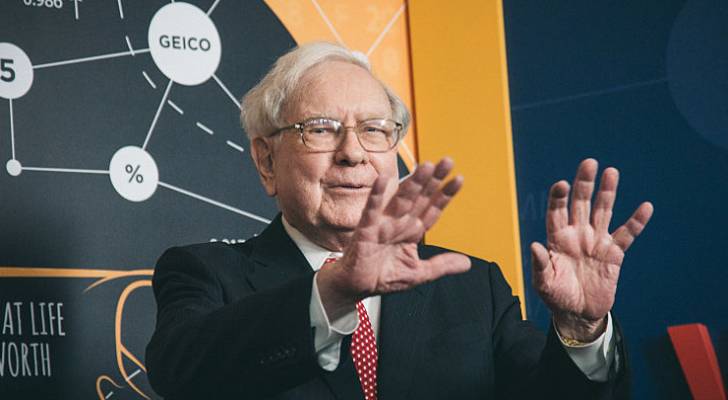Main financial assets discussed: Berkshire Hathaway (BRK.A, BRK.B), Apple (AAPL), Occidental Petroleum (OXY), Activision Blizzard (ATVI), Valero (VLO), HF Sinclair (DINO), Armanino Foods of Distinction (AMNF), short-term US Treasuries (TFLO)
Top 3 key points:
1. Berkshire Hathaway has a cash management strategy that aims to invest excess cash in businesses that offer quick returns and future growth opportunities. The company typically holds around 20% of its market cap in cash.
2. Retail investors can learn from Buffett's approach by considering their own cash management strategies. Holding cash can be beneficial when there are no attractive investment opportunities or when stocks are overvalued.
3. The decision to hold cash or invest in stocks depends on individual investment goals, risk tolerance, and the availability of attractive opportunities. Investors should establish their own return thresholds and consider factors such as market conditions, earnings potential, and inflation.
Recommended actions: **Hold** cash when there are no attractive investment opportunities or when stocks are overvalued. Consider investing in stocks when they are undervalued and offer good returns. Adjust cash management strategies based on individual investment goals and market conditions.
Warren Buffett warns that the U.S. economy's "incredible period" of growth is coming to an end, and suggests investors consider diversifying with recession-resistant assets, commercial real estate, international stocks, and keeping cash on hand.
Warren Buffett's recent sale of $8 billion worth of stock is seen by some as a precautionary move against an upcoming recession, while others believe it is simply a diversification strategy and that the market is not concerned; however, Kevin O'Leary predicts chaos for the U.S. economy due to potential interest rate hikes.
Regularly investing money in the stock market, particularly in long-term holdings such as Amazon, Adobe, and Tesla, is the best way to accumulate wealth, as these companies show strong growth potential and innovative strategies in their respective industries.
Warren Buffett's conglomerate, Berkshire Hathaway, is at its strongest point ever as it celebrates Buffett's 93rd birthday, with record operating profit and all-time high shares, driven by astute investments such as Apple and Japanese trading houses.
Buffett's Berkshire Hathaway holds two tech stocks with growth potential: Amazon, which has consistently increased its revenue and profitability, and Snowflake, a data-software company poised to benefit from the AI revolution and with strong sales growth. Both stocks are considered discounted and may be attractive for growth-focused investors.
Summary: Investing during periods of volatility in the stock market is advised by Warren Buffett, as the market's short-term movements generally do not affect long-term investment strategies, and investing consistently during rough patches can be more lucrative than waiting for the perfect time to buy. It is important to focus on companies with solid business fundamentals and a competitive advantage when choosing stocks.
Warren Buffett's investment strategy, characterized by a focus on assets with strong earnings potential and long-term investment, may face competition from Bitcoin's outperformance, as reflected by the consistent rise in Bitcoin's price compared to Berkshire Hathaway's shares.
Certain stocks, such as Abbott Laboratories, Johnson & Johnson, and Coca-Cola, possess strong brands, diverse portfolios, and reliable dividends, making them excellent investments regardless of market conditions.
Warren Buffett's Berkshire Hathaway saw its stocks reach all-time highs, increasing the investment conglomerate's market value to almost $800 billion and marking a gain of over 4,300,000% in Berkshire's original Class A shares since Buffett became CEO in 1965.
Warren Buffett's Berkshire Hathaway achieves record stock price and market cap, surpassing the S&P 500.
Despite uncertainty in the stock market, three stocks that are well-positioned to weather a market crash are Berkshire Hathaway, Walmart, and PepsiCo. Berkshire Hathaway's strong financial results and diversified business make it resilient, while Walmart benefits from its discount retail status and reputation as the largest grocery retailer in America. PepsiCo's steady earnings growth, pricing power, and long history of increasing dividends make it a reliable choice.
Warren Buffett values time more than money and believes that money can buy time for the average person through wise saving, investing, and planning for retirement. He also emphasizes the power of compound interest in growing wealth over time.
Warren Buffett's conglomerate, Berkshire Hathaway, holds several AI-focused stocks in its portfolio, including Apple, American Express, Snowflake, Amazon, Bank of America, General Motors, and Coca-Cola. Despite Buffett's own lack of expertise in technology, these companies recognize the importance of AI and are leveraging it in various ways.
Berkshire Hathaway, led by Warren Buffett, has a stock portfolio heavily focused on the technology sector, with 53% of their investments allocated to this industry, and a remarkable 50% of their portfolio invested in Apple specifically. This is a significant shift from Buffett's traditional avoidance of technology stocks and highlights the importance of targeting long-term investments and staying with winners.
Warren Buffett is showing interest in Brazilian fintech company Nu Holdings, which has experienced significant growth in its customer base and financial performance, making it an attractive investment in the fintech market.
Warren Buffett's portfolio includes several AI stocks, such as Alphabet, Amazon, Apple, Microsoft, Snowflake, Taiwan Semiconductor Manufacturing, Qualcomm, Broadcom, NXP Semiconductors, Cisco Systems, IBM, and Texas Instruments.
Despite challenges such as surging Treasury yields and Federal Reserve hawkishness, the equity-investing landscape has shown resilience, with the S&P 500 posting modest gains and the Nasdaq 100 up for the week. Investors remain optimistic about the economy's ability to withstand higher borrowing costs and anticipate positive revenue and earnings growth. Credit markets have remained stable, while volatility has remained muted and profit strength in Corporate America is expected to drive stocks.
Charlie Munger, long-time business partner of Warren Buffett, emphasizes the importance of patience in investing, stating that the big money is not in buying and selling, but in waiting, as time and compounding play a significant role in investment growth.
